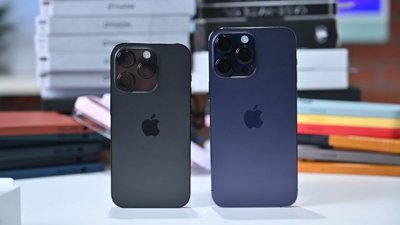Intel: Merom notebooks to arrive late next month
Intel Corp. on Thursday said notebook computer systems based on its new Core 2 Duo mobile processors, previously code-named Merom, should begin hitting the market by the end of August.
Prior to Thursday's unveiling, Intel began shipments of production-ready Intel Core 2 Duo processors for both desktops (Conroe) and notebook (Merom) to its partners, such as Apple Computer. The company said the first Conroe-based systems should begin to show up from PC manufacturers in early August while Merom-based notebooks will be available at the end of August.
Meanwhile, Intel said systems based on its Core 2 Extreme chips (the high-end, performance version of Conroe) are already available from some system manufacturers.
"The Core 2 Duo processors are simply the best processors in the world," said Intel chief executive Paul Otellini. "Not since Intel introduced the Pentium processor has the industry seen the heart of the computer reinvented like this.
Otellini added that the highly anticipated processor family has already received very broad support with more than 550 customer system designs underway — the most in Intel's history.
While Apple's plans for the new Conroe chips are uncertain at this time, the company is widely expected to adopt Merom in an upcoming revision to its MacBook Pro line of professional notebooks.
The Cupertino, Calif.-based Mac maker has historically targeted upgrades to its professional notebook lines around the September time frame. However, complications with its previous microchip suppliers sometimes caused the company to stumble along the way.
Last year, updates to the PowerBook G4 slipped several weeks from their target launch during the third week of September due to microprocessor availability issues and bugs in the notebooks' Intrepid 2 chipset. During the previous year, a dearth of higher performance G4 processors prevented any release of faster PowerBook systems during the second half of the year.
This year, things may play out differently for Apple, thanks in part to a more reliable supply of the industry's fastest microprocessors — one of the primary reasons Apple turned away from IBM and Freescale and towards Intel as its chip supplier.
When asked last week whether Intel's more robust and higher frequency product roll-out schedule would allow Apple update its systems at a faster pace than in the past, company executive vice president Tim Cook would only say that he was "very pleased to be working with Intel" and the new partnership would allow Apple to "change over time."
Apple last updated its MacBook Pro line of professional notebooks in January, commencing shipments the following month.
 Katie Marsal
Katie Marsal










 David Schloss
David Schloss
 Marko Zivkovic
Marko Zivkovic
 Malcolm Owen
Malcolm Owen

 William Gallagher
William Gallagher
 Mike Wuerthele
Mike Wuerthele
 Christine McKee
Christine McKee







